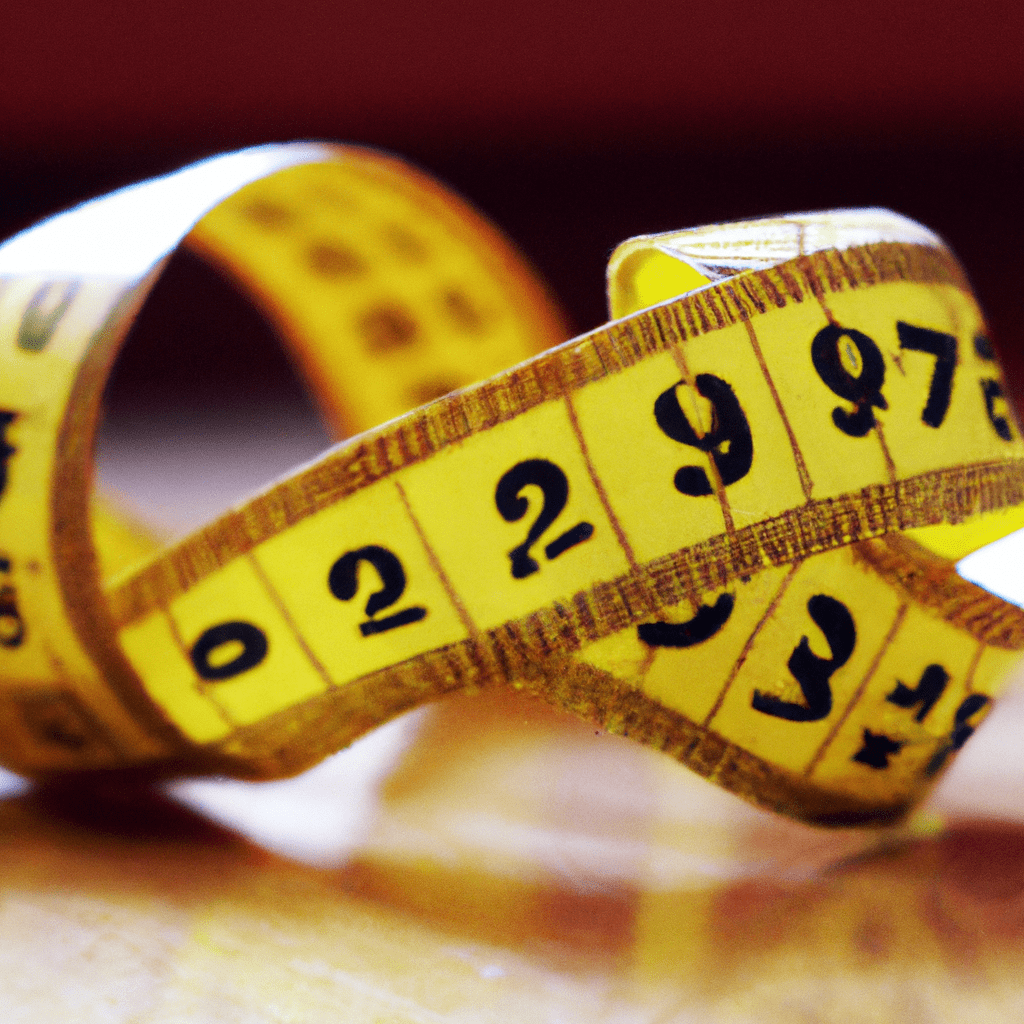

Losing weight can be a daunting task, especially for those who are just starting out on their journey to a healthier lifestyle. In this article, we explore the world of weight loss for beginners, providing practical tips and guidance to help you achieve your goals.
From simple dietary changes to incorporating exercise into your daily routine, we aim to equip you with the necessary tools to embark on a successful weight loss journey. So, if you’re ready to take the first step towards a happier, healthier you, read on to discover our beginner-friendly weight loss strategies.
Understanding Weight Loss
What is weight loss?
Weight loss refers to the process of intentionally losing weight, typically in the form of body fat, to improve one’s overall health and well-being.
It involves making lifestyle changes and adopting healthy habits that promote a gradual and sustainable reduction in body weight.
Why is weight loss important?
Weight loss is important for several reasons. Firstly, maintaining a healthy weight can reduce the risk of developing chronic diseases such as heart disease, diabetes, and certain types of cancer.
Additionally, losing excess weight can improve overall physical fitness and mobility, enhance mental well-being, boost self-confidence, and increase energy levels.
Factors that contribute to weight gain
Understanding the factors that contribute to weight gain is crucial for effective weight loss. Several factors can lead to weight gain, including consuming a high-calorie diet, lack of physical activity, hormonal imbalances, certain medications, genetics, emotional eating, and inadequate sleep. By identifying and addressing these factors, individuals can take steps toward achieving their weight loss goals.
Setting a Goal
The importance of setting a goal
Setting a weight loss goal provides a clear target to work towards and helps individuals stay motivated throughout their journey.
It gives a sense of purpose and direction, enabling individuals to track their progress and celebrate milestones along the way. Without a goal, it can become challenging to stay focused and maintain consistency in adopting healthy habits.
Setting realistic and achievable goals
When setting weight loss goals, it is essential to be realistic and set achievable targets. Unrealistic goals can lead to frustration and disappointment, ultimately derailing the weight loss journey.
It is important to consider factors such as current weight, lifestyle, and health conditions when determining a realistic goal. Gradual and sustainable weight loss of 1-2 pounds (0.5-1 kg) per week is generally considered healthy and attainable.
Creating a timeline for your weight loss journey


Creating a timeline for your weight loss journey can help break down the overall goal into smaller, manageable milestones. This timeline can be based on the rate at which you are comfortable losing weight, taking into account any special events or occasions that may require adjustments.
It is important to remember that weight loss is a journey, and it may take time to reach your goal. By having a timeline, you can stay motivated and make consistent progress toward achieving your desired weight.
Healthy Eating Habits
Understanding calories and portion control
To achieve weight loss, it is crucial to understand calories and practice portion control. Calories are a measure of energy, and when consumed in excess, they can contribute to weight gain.
By becoming aware of the calorie content in different foods and practicing portion control, individuals can create a calorie deficit necessary for weight loss. This can be achieved by using smaller plates, measuring food portions, and being mindful of portion sizes while eating.
The importance of a balanced diet
A balanced diet is essential for sustainable weight loss and overall well-being. It involves consuming a variety of nutrients in appropriate proportions from different food groups.
A balanced diet should include fruits, vegetables, whole grains, lean proteins, and healthy fats. These foods provide essential vitamins, minerals, fiber, and other essential nutrients necessary for optimal health. By incorporating a balanced diet, individuals can successfully lose weight without compromising their nutritional needs.
Incorporating fruits, vegetables, and whole grains
Fruits, vegetables, and whole grains should be the foundation of a healthy weight-loss diet. These foods are low in calories and high in fiber, which can help control hunger and promote healthy digestion.
They are also packed with vitamins, minerals, and antioxidants that support overall health. Incorporating a variety of colorful fruits and vegetables, along with whole grains like quinoa, brown rice, and whole wheat bread, can provide vital nutrients while aiding weight loss efforts.
Meal Planning and Preparing
Benefits of meal planning
Meal planning is a valuable tool for successful weight loss. It allows individuals to take control of their food choices, ensures they have nutritious meals readily available, and helps avoid impulsive or unhealthy food decisions. By planning meals, individuals can save time, reduce food waste, and stay on track with their weight loss goals.
Creating a weekly meal plan
Creating a weekly meal plan involves deciding on the meals and snacks to consume each day of the week. It can be helpful to consider personal preferences, dietary restrictions, and goals when designing the plan.
Include a variety of nutrient-dense foods, aim for balanced meals, and consider portion sizes. Having a shopping list based on the meal plan can also assist in sticking to healthier choices while grocery shopping.
Healthy cooking techniques


Implementing healthy cooking techniques is essential for preparing nutritious and weight-loss-friendly meals. Opt for cooking methods such as grilling, baking, or steaming instead of deep-frying.
Minimize the use of added fats and oils while cooking. Choose lean protein sources, incorporate plenty of vegetables, and use herbs and spices to add flavor without excessive calories. These cooking techniques can enhance the nutritional value of meals while reducing unnecessary fats and calories.
Physical Activity
Choosing the right type of exercise
Choosing the right type of exercise is vital for weight loss. It should be an activity that you enjoy and can sustain in the long run. Aim for a combination of cardiovascular exercises, strength training, and flexibility exercises.
Cardiovascular exercises, such as brisk walking, cycling, or swimming, help burn calories and improve heart health. Strength training, including weightlifting or bodyweight exercises, helps build muscle and boost metabolism. Flexibility exercises like yoga or stretching help enhance overall physical fitness.
Creating an exercise routine
Creating an exercise routine helps incorporate physical activity into daily life consistently. Set aside specific times for exercise and treat them as non-negotiable appointments with yourself. Start with realistic goals and gradually increase the intensity and duration of workouts.
Consider incorporating a mix of aerobic exercises and strength training into the routine. It can also be beneficial to vary the types of exercises performed to keep workouts enjoyable and prevent boredom.
Benefits of regular physical activity
Regular physical activity offers numerous benefits beyond weight loss. It helps burn calories, increases metabolism, improves cardiovascular health, strengthens muscles and bones, enhances flexibility and balance, boosts mood, reduces stress, and promotes better sleep.
Engaging in regular physical activity not only supports weight loss efforts but also improves overall health and well-being.
Staying Motivated
Finding your motivation
Finding and maintaining motivation is crucial for long-term weight loss success. Identify personal reasons for wanting to lose weight, whether it be improving health, feeling more confident, or increasing energy levels.
Set specific goals and regularly remind yourself of the benefits you can achieve by achieving those goals. Additionally, find sources of inspiration and surround yourself with a supportive environment that encourages your progress.
Tracking progress and celebrating milestones
Tracking progress and celebrating milestones can help maintain motivation throughout the weight loss journey. Keep a record of weight, measurements, and body composition changes to monitor progress.
Celebrate achievements, whether it’s losing a certain amount of weight or reaching a milestone in physical fitness. These celebrations can reinforce positive behavior and remind individuals of their achievements, driving them to continue making progress.
Overcoming obstacles and staying committed


Obstacles are a natural part of any weight loss journey, and staying committed despite them is crucial. Identify potential obstacles, such as social events or cravings, and develop strategies to overcome them.
Seek support from friends, family, or a support group when facing challenges. Understand that setbacks may occur, but they should not discourage long-term progress. Stay focused on the overall goal and remind yourself of the benefits of achieving weight loss for a healthier and happier life.
Seeking Support
Importance of a support system
Having a support system plays a significant role in achieving weight loss goals. Surrounding yourself with individuals who are supportive, understanding, and encouraging can provide motivation, accountability, and guidance.
A support system can involve friends, family members, coworkers, or even online communities or weight loss groups. These individuals can offer valuable advice, share experiences, and provide emotional support during challenging times.
Joining weight loss groups or programs
Joining weight loss groups or programs can provide additional support and guidance on the weight loss journey. These groups often offer structured meal plans, exercise routines, and educational resources to assist individuals in their weight loss goals.
They also provide a sense of community and a platform to share experiences, challenges, and successes with like-minded individuals. Consider researching and joining a reputable weight loss group or program that aligns with your personal preferences and goals.
Working with a healthcare professional
Working with a healthcare professional, such as a registered dietitian or a doctor, can provide personalized guidance and support tailored to individual needs. These professionals can help develop an individualized weight loss plan, monitor progress, and offer evidence-based advice.
They can also address any underlying health conditions or concerns that may impact weight loss efforts. Seeking professional help ensures a safe and effective weight loss journey.
Mindful Eating
Understanding mindful eating
Mindful eating involves paying full attention to the eating experience and being aware of physical and emotional cues related to hunger and satiety.
It emphasizes slowing down, savoring each bite, and listening to the body’s signals for hunger and fullness. Mindful eating encourages a healthy relationship with food and can help individuals make conscious choices that support weight loss goals.
Techniques for practicing mindful eating
Several techniques can help individuals practice mindful eating. Start by removing distractions such as phones or television while eating. Take time to appreciate the aroma, texture, and taste of each bite. Chew food thoroughly and eat slowly, allowing the body to recognize feelings of fullness.
Tune in to hunger and fullness cues throughout the meal. By practicing these techniques, individuals can develop a deeper understanding of their body’s needs and make healthier choices that support weight loss.
Benefits of mindful eating for weight loss


Mindful eating offers numerous benefits for weight loss. By being more in tune with hunger and fullness cues, individuals can prevent overeating and make more conscious food choices.
Mindful eating can help distinguish between true physical hunger and emotional or boredom-driven eating, leading to a reduction in unnecessary calorie consumption. It also promotes a healthier attitude towards food, fostering a positive relationship with eating that supports long-term weight management.
Healthy Snacking
Choosing nutritious snacks
Choosing nutritious snacks is essential for weight loss. Opt for snacks that provide a balance of macronutrients, including protein, healthy fats, and fiber. Avoid snacks that are high in added sugars, unhealthy fats, or refined carbohydrates.
Look for options such as fresh fruits, raw nuts, Greek yogurt, vegetable sticks with hummus, or homemade energy bars. These snacks offer valuable nutrients, promote satiety, and can help curb cravings without derailing weight loss efforts.
Snack ideas for weight loss
When it comes to snack ideas for weight loss, there are plenty of options to choose from. Consider having a small handful of almonds, a piece of fruit with a tablespoon of nut butter, carrot sticks with Greek yogurt dip, a hard-boiled egg, or a small portion of air-popped popcorn.
These snacks provide a combination of protein, fiber, and healthy fats, which help keep hunger at bay and provide sustained energy throughout the day.
Tips for avoiding unhealthy snacks
To avoid unhealthy snacks, it is important to plan and have healthier alternatives readily available. Prepare snack options in advance, such as cutting up fruits and vegetables or portioning out nuts into single servings.
Keep unhealthy snacks out of sight to reduce temptation and create an environment that promotes healthier choices. Opt for whole foods instead of processed snacks, and practice mindful eating when snacking to be aware of portion sizes and satiety cues.
Lifestyle Changes
Incorporating healthy habits into daily life
Incorporating healthy habits into daily life is essential for long-term weight loss. Rather than following a temporary diet, focus on making sustainable lifestyle changes.
This involves adopting habits such as regular physical activity, mindful eating, getting enough sleep, managing stress, and prioritizing self-care. By integrating these habits into daily life, weight loss becomes a natural and sustainable part of a healthy lifestyle.
Getting enough sleep and managing stress
Adequate sleep and stress management are crucial aspects of weight loss. Lack of sleep can disrupt hunger and satiety hormones, leading to increased appetite and cravings for unhealthy foods.
Aim for 7-9 hours of quality sleep per night to support overall health and weight loss efforts. Additionally, managing stress through techniques such as meditation, deep breathing, or engaging in hobbies can reduce emotional eating and support healthier choices.
Avoiding crash diets and quick fixes


It is important to avoid crash diets and quick fixes in the quest for weight loss. These approaches often focus on extreme calorie restriction or eliminating entire food groups, which can lead to nutrient deficiencies, increased cravings, and unsustainable weight loss.
Instead, choose a balanced and flexible approach that allows for the enjoyment of a wide variety of foods while promoting overall health. Sustainable weight loss requires a long-term commitment to healthy habits rather than short-term fixes.
In conclusion, understanding weight loss is the first step towards embarking on a successful weight loss journey. Setting realistic goals, adopting healthy eating habits, incorporating physical activity, and seeking support are key components of achieving long-term weight loss.
By making mindful choices, celebrating milestones, and embracing a healthy lifestyle, individuals can achieve their weight loss goals and enjoy the benefits of improved health and well-being. Remember, weight loss is a personal journey, and with determination, commitment, and support, it is achievable for everyone.







